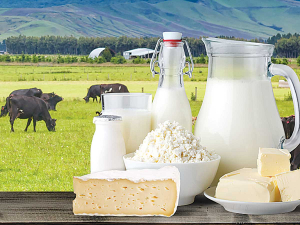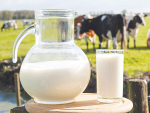There may be plenty of green grass for cows to munch but fear is building about the same headwinds they faced at the end of last year: rising interest rates, subdued global dairy prices, soaring farm input costs and looming regulations.
There are some serious headwinds ahead. Economies across the world are under huge strain, Covid is still hovering. A looming recession means consumer household budgets are being purposely limited to curb inflation.
The labour market remains extremely tight, with many farmers forced to choose lower productivity because they can’t find staff.
One silver lining last year was a strong milk price, however, the first two Global Dairy Trade (GDT) auctions signal a further softening of prices.
According to NZX, whole milk powder (WMP) prices have eased 33% since prices peaked in March 2022, falling back below the US$3,250/t mark by the end of 2022. Last week it was sitting at US$3,218/t.
Skim milk powder (SMP) prices lost 38% of their value over the last nine months of 2022, from the peak achieved in March, breaking back below the US$3,000/t mark by the end of December. Last week it was around US$2,842/t.
For farmers the big worry is that while the milk price is coming back, the prices of farming inputs, namely fertiliser, feed and fuel, show no sign of abating.
Interest rates have risen significantly and will continue to rise in 2023. With many farmers floating their rates, farmer leaders warn that it will not be uncommon to see a 9% rate, translating into $1.50-$2/kgMS more than only a short time ago for the average dairy farm.
The latest Federated Farmers Banking Survey of 1,200 farming businesses in November reported that their average mortgage interest rate had increased to 6.29% from 4.59% in May (and 3.95% in November 2021).
While Kiwi households and businesses are also feeling the pinch, the average farm mortgage value has increased from $4.07 million to $4.19 million, while the median increased from $2.25 million to $2.50 million.
Even the most optimistic dairy farmers can see the pressures coming this year.
Most would have a contingency plan in place, saving some cash in the bank to get through the challenging times.
The potential for a significant lowering of the milk price and rise in interest rates is real. New Zealand farmers have been there before.
And as always, they will be prepared for the challenging headwinds ahead.


















